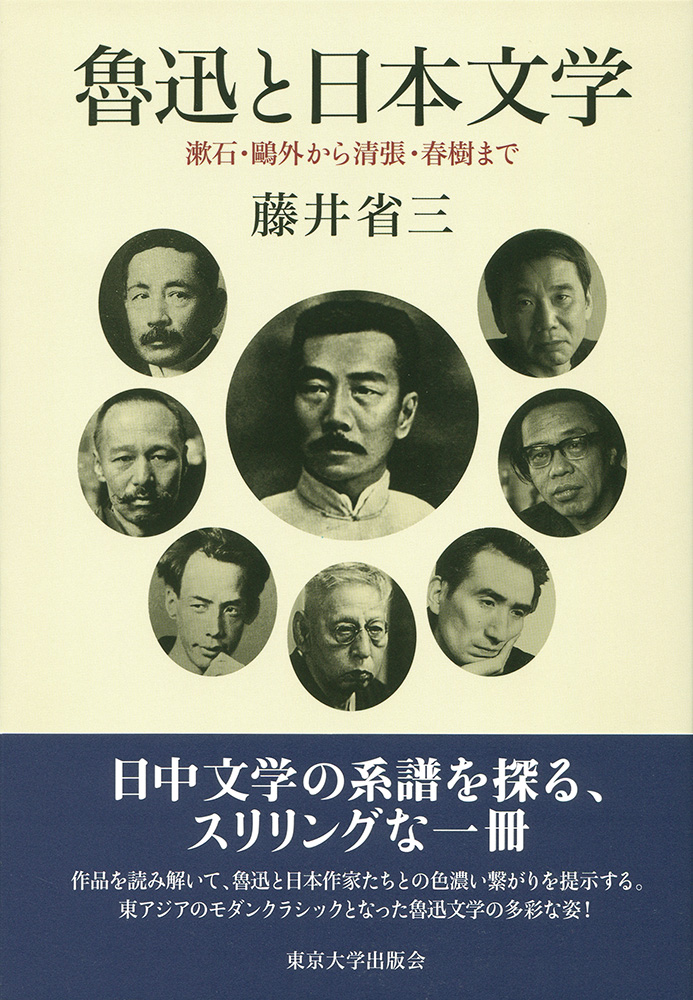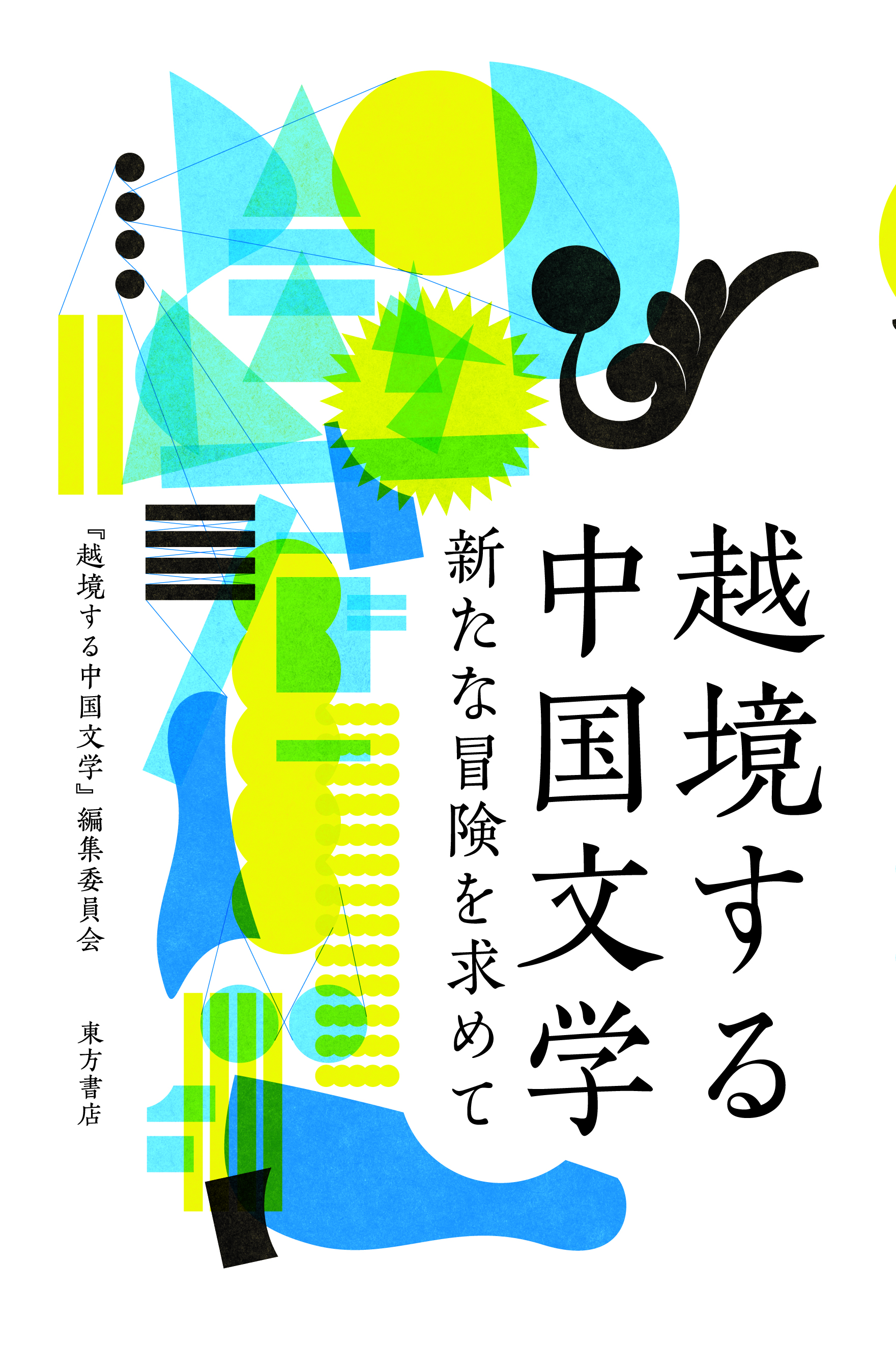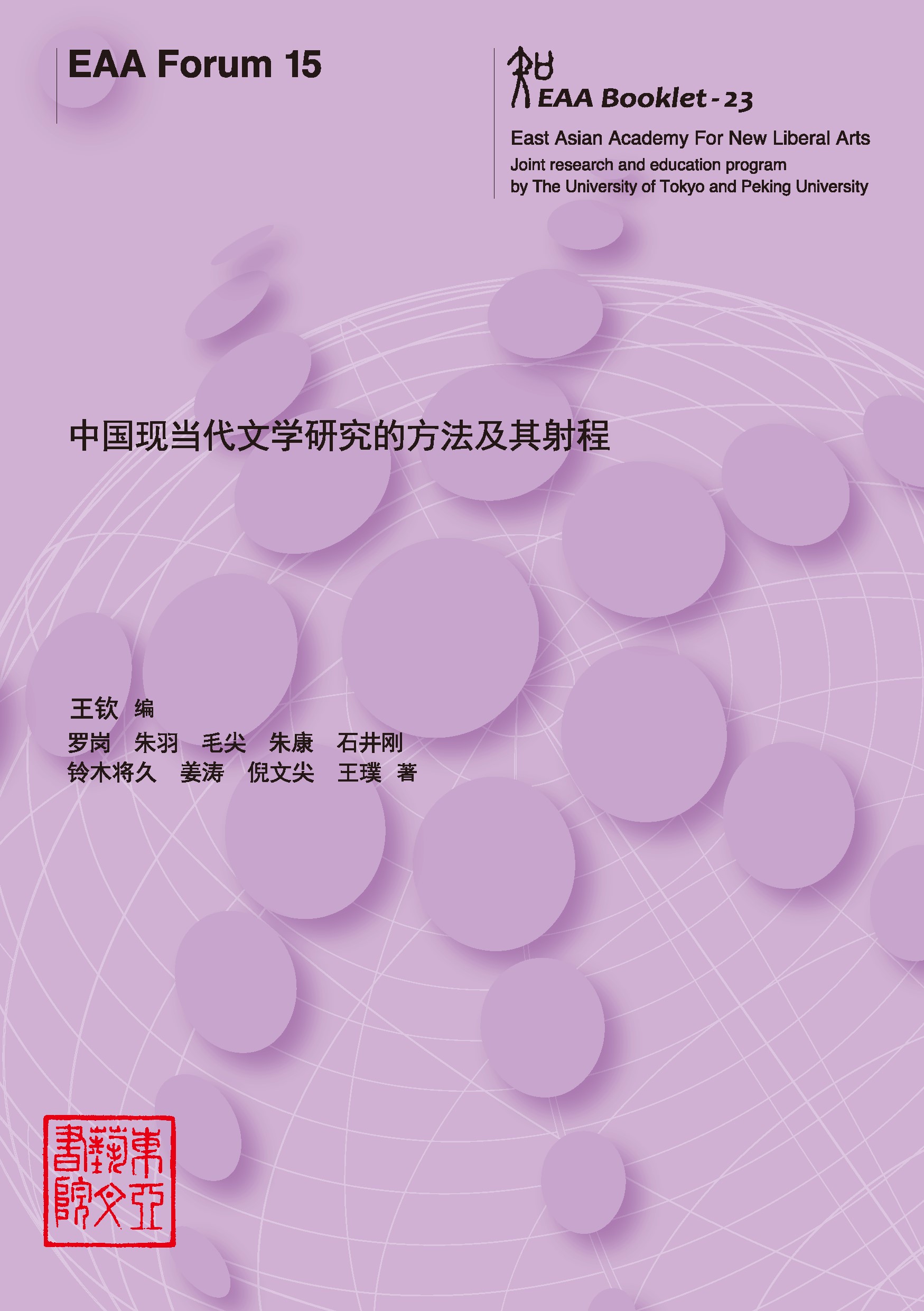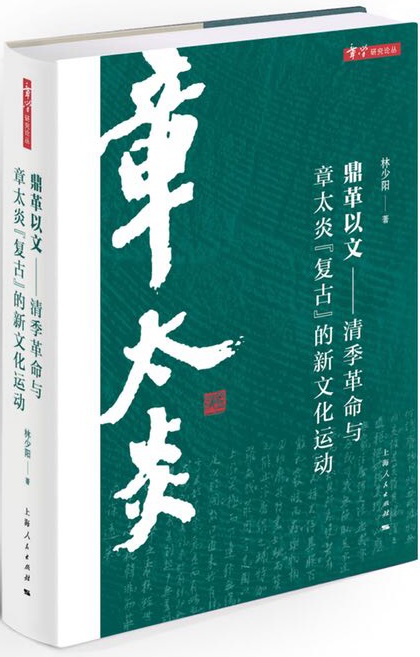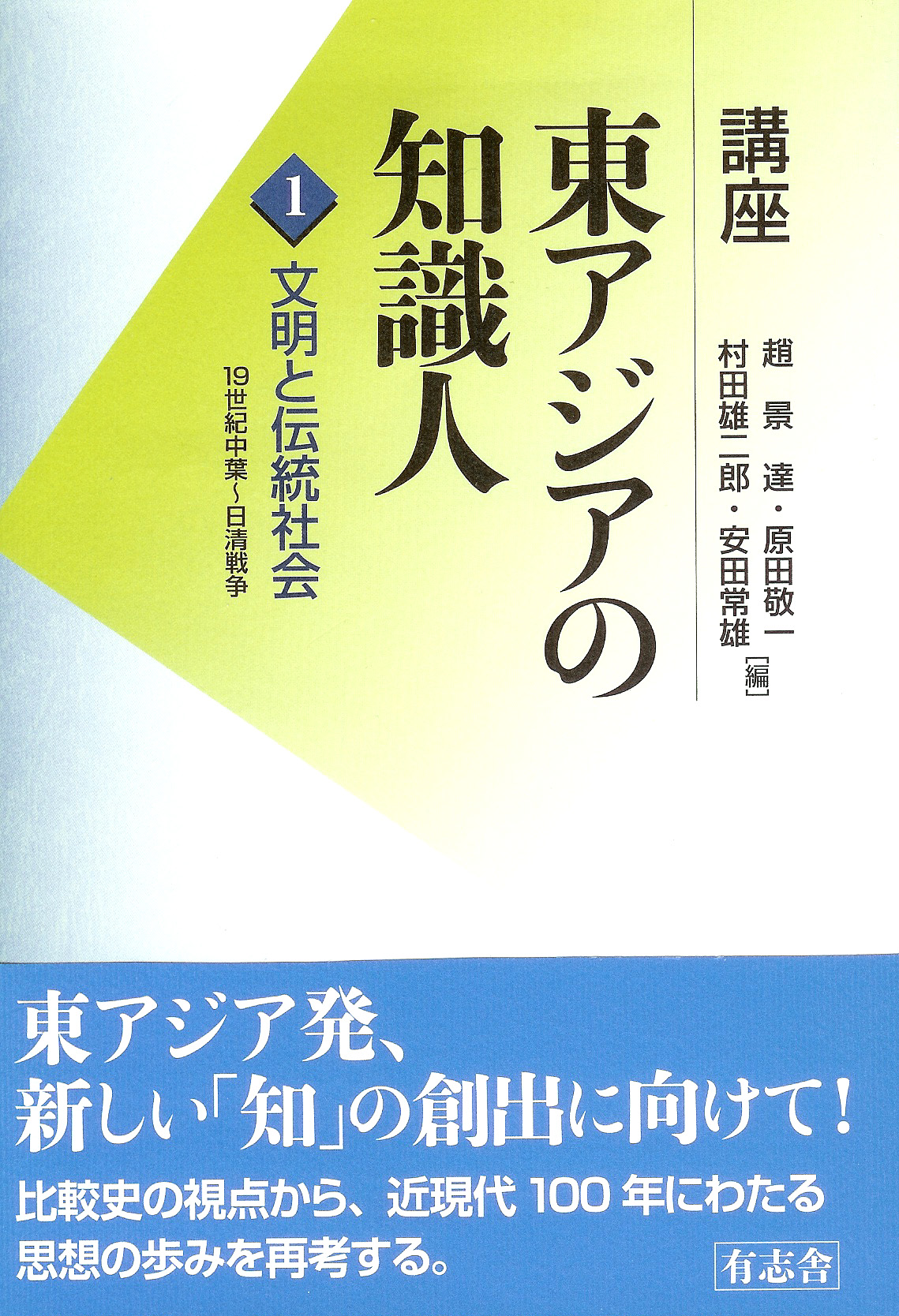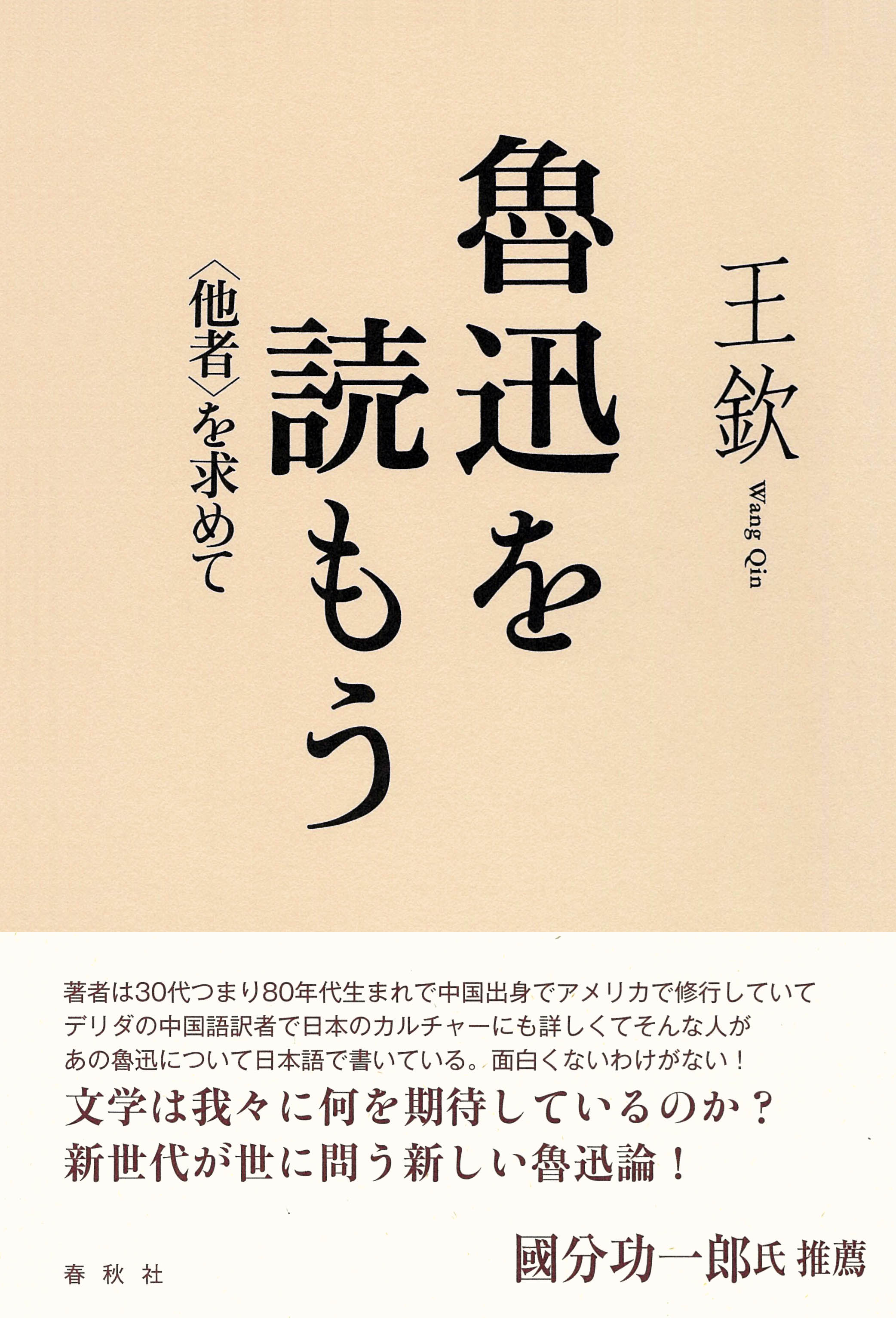
Title
Rojin wo yomō (Reading Lu Xun - Pursuit of the Other)
Size
296 pages, 127x188mm
Language
Japanese
Released
October 14, 2022
ISBN
9784393461358
Published by
Shunjusha
Book Info
See Book Availability at Library
Japanese Page
This book is a reading of Lu Xun, the best-known twentieth-century Chinese writer. While this book is undoubtedly about Lu Xun, I should above all argue that, instead of being another contribution to the field called in China as well as in Japan “Lu Xun Studies,” the book aims at exploring the problematic of “reading a text” as well as reexamining the significance of literature in the current historical context through reading Lu Xun’s literary texts.
As regards young people in the present-day, one could say that, his well-known status as a writer notwithstanding, Lu Xun is scarcely being read carefully. Even this book, with its light and easy-going title, may probably been neglected. Why must we read Lu Xun now? Rather than providing any direct answer to this reasonable question, this book tries to give some hints via showing several close readings. In other words, I argue that Lu Xun’s texts, and what we call “literature” in general, cannot not take responsibility to the fundamental issues of a particular society or age through the medium whose name is none other than “text.” Thus, as readers, we must confront these issues, as well as the issues of our society, through reading various “texts” closely, patiently, and sometimes painstakingly. In this sense, literature is the abode of the secret of our age.
I think the act of reading literature thus understood is also what “culture” signifies. When talking about reading Lu Xun, what is at stake is not so much knowledge of Lu Xun or modern Chinese literature as reflections, by means of opening up Lu Xun’s texts, of how Lu Xun struggled with socio-political problems through his writing and how he scribbled down the records of his struggle allegorically. It goes without saying that one of the characteristics of Lu Xun’s texts lies in the inevitable imbalance between the speed of his various writings, on one hand, and the slowness of our close reading, on the other hand.
Thus, in order to show the variety of Lu Xun’s texts, this book does a close reading of some of his short stories, prose poems, “zawen,” and so forth. I will definitely feel happy if the reader is led into Lu Xun’s world of literature through this book. But if the reader, on the contrary, becomes interested in the theoretical issue of “reading” and starts thinking about this problem individually, she will realize that she is responding to the implicit anticipation of this book. Either way, of course, will she find some hints about “reading” and “writing,” two fundamental gestures irreducible to any specific academic field, including “Lu Xun Studies” and “Studies in Modern Chinese Literature.”
(Written by WANG Quin, Associate Professor, Graduate School of Arts and Sciences / 2023)
Table of Contents
Chapter 1 Towards the (Im-)Possibility of Literature: Reading “A Good Story”
Chapter 2 Dialectics between Writing and Memory: Reading “The Preface to Outcry”
Chapter 3 “Translating” the Voice of Enlightenment: Reading “Diary of A Madman”
Chapter 4 Politics of Hope: Reading “Hometown”
Chapter 5 “Face” of the Other: Reading “Wuchang”
Chapter 6 Individuality, Hospitality, Community: Reading “Rural Plays”
Chapter 7 How to Ask for Forgiveness: Reading “The Kite”
Chapter 8 Towards a Nonpolitical Politics: Reading “A Jin”
Notes
Afterwards
Index
Related Info
By Ishii Tsuyoshi (Kyoyo Gakubu Ho 7 July 2023)
https://www.c.u-tokyo.ac.jp/info/about/booklet-gazette/bulletin/644/open/644-2-03.html
By Nakajima Takahiro (UP 52 (4) April 2023)
https://www.utp.or.jp/book/b10031088.html
By Hoshino Futoshi (Artscape 15 February 2023)
https://artscape.jp/report/review/10182841_1735.html



 Find a book
Find a book


